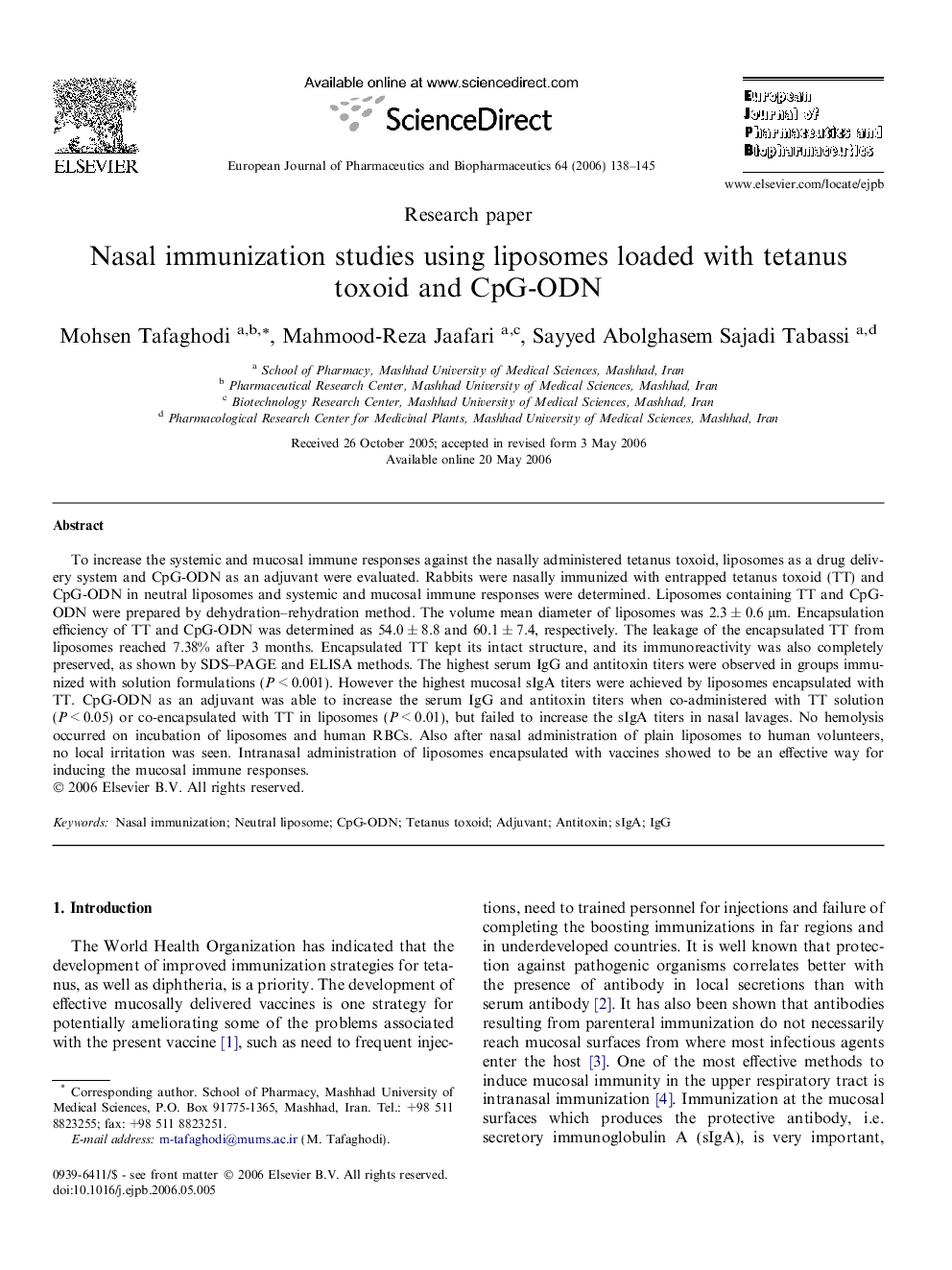| Article ID | Journal | Published Year | Pages | File Type |
|---|---|---|---|---|
| 2085749 | European Journal of Pharmaceutics and Biopharmaceutics | 2006 | 8 Pages |
To increase the systemic and mucosal immune responses against the nasally administered tetanus toxoid, liposomes as a drug delivery system and CpG-ODN as an adjuvant were evaluated. Rabbits were nasally immunized with entrapped tetanus toxoid (TT) and CpG-ODN in neutral liposomes and systemic and mucosal immune responses were determined. Liposomes containing TT and CpG-ODN were prepared by dehydration–rehydration method. The volume mean diameter of liposomes was 2.3 ± 0.6 μm. Encapsulation efficiency of TT and CpG-ODN was determined as 54.0 ± 8.8 and 60.1 ± 7.4, respectively. The leakage of the encapsulated TT from liposomes reached 7.38% after 3 months. Encapsulated TT kept its intact structure, and its immunoreactivity was also completely preserved, as shown by SDS–PAGE and ELISA methods. The highest serum IgG and antitoxin titers were observed in groups immunized with solution formulations (P < 0.001). However the highest mucosal sIgA titers were achieved by liposomes encapsulated with TT. CpG-ODN as an adjuvant was able to increase the serum IgG and antitoxin titers when co-administered with TT solution (P < 0.05) or co-encapsulated with TT in liposomes (P < 0.01), but failed to increase the sIgA titers in nasal lavages. No hemolysis occurred on incubation of liposomes and human RBCs. Also after nasal administration of plain liposomes to human volunteers, no local irritation was seen. Intranasal administration of liposomes encapsulated with vaccines showed to be an effective way for inducing the mucosal immune responses.
